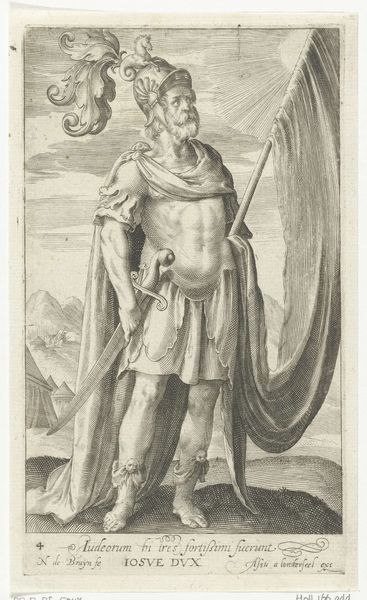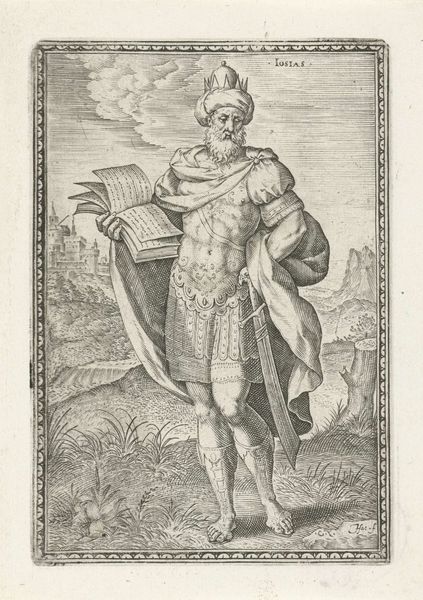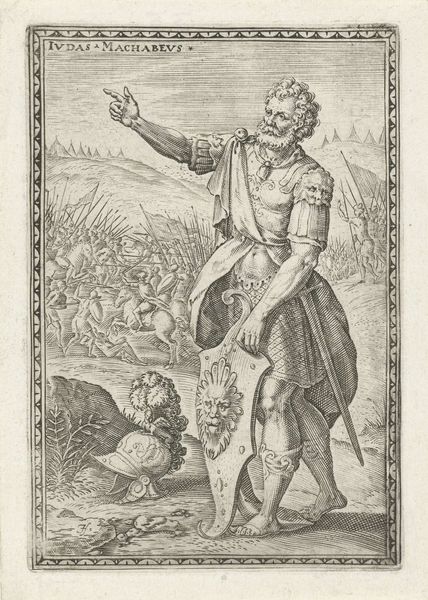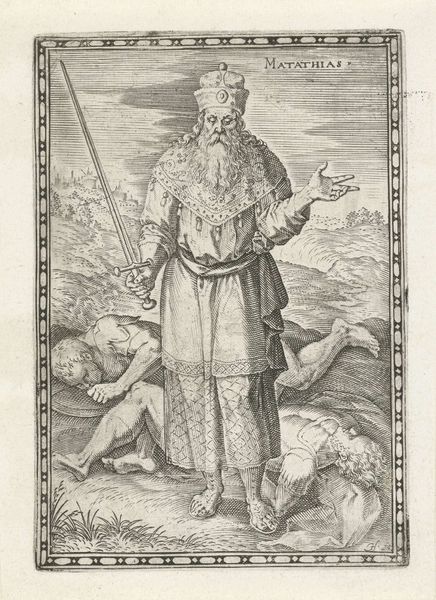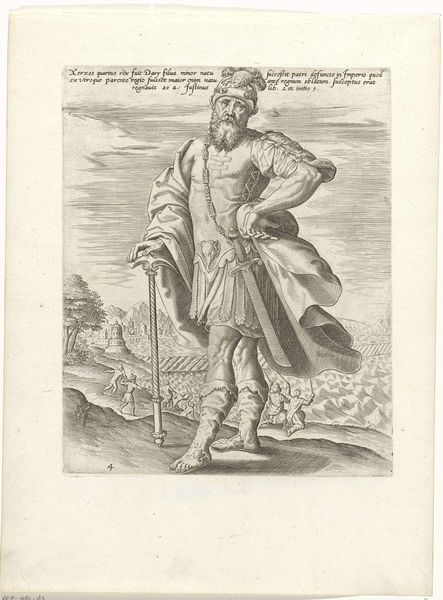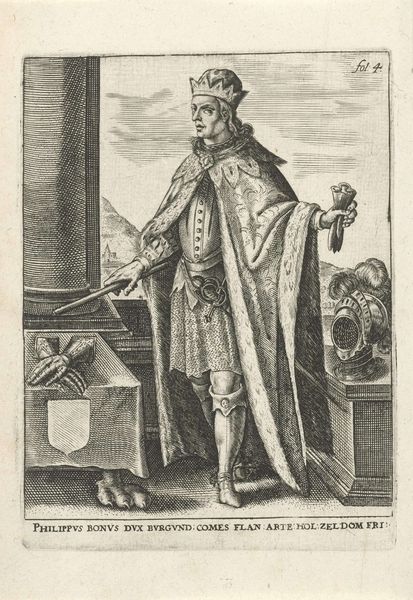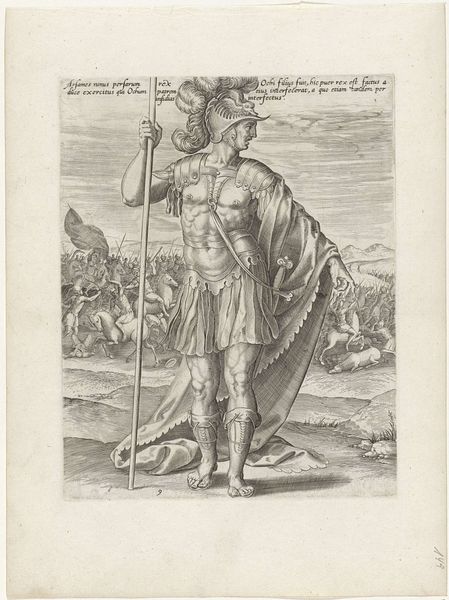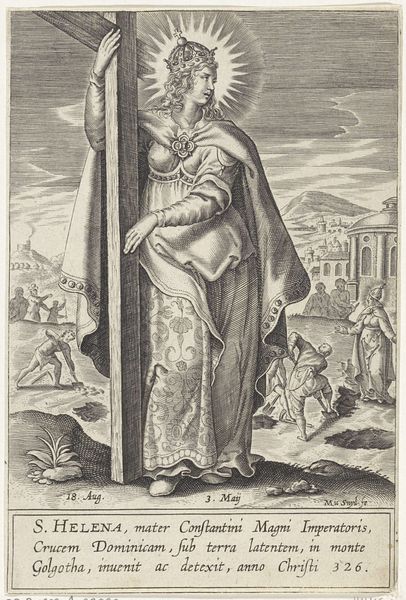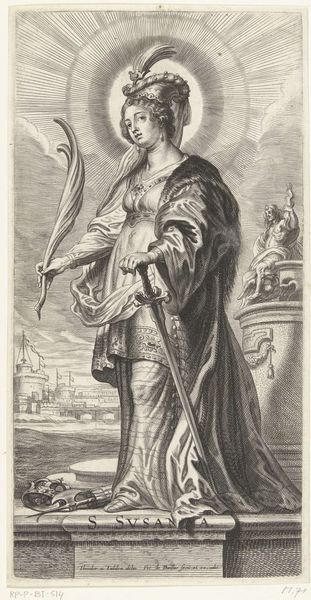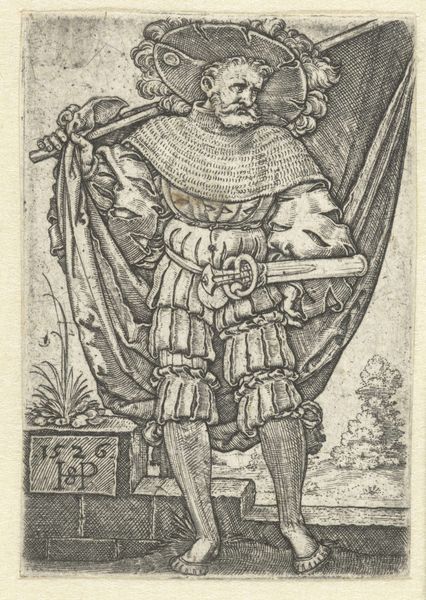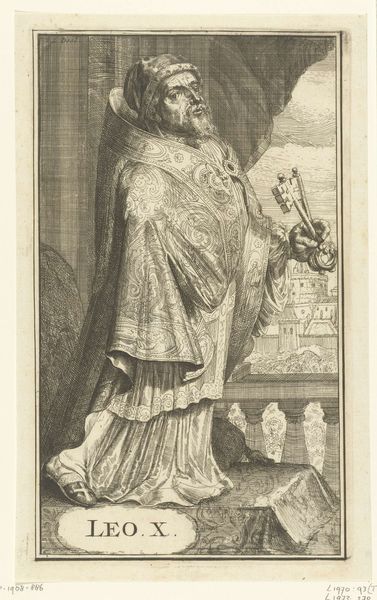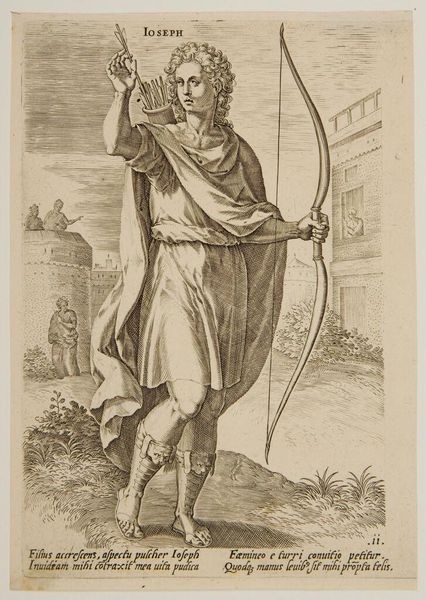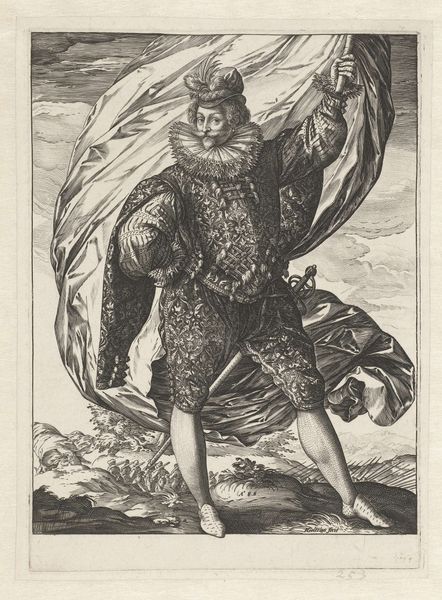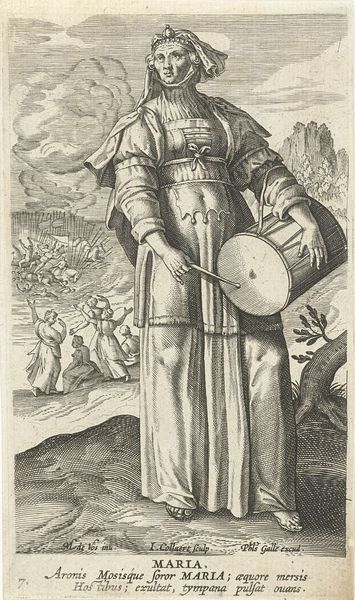
print, engraving
#
portrait
#
baroque
# print
#
old engraving style
#
figuration
#
portrait drawing
#
history-painting
#
engraving
Dimensions: height 190 mm, width 111 mm
Copyright: Rijks Museum: Open Domain
Editor: Here we have "David speelt op zijn harp," or "David Playing his Harp," an engraving by Nicolaes de Bruyn, made sometime between 1581 and 1656. The landscape teems with both war and song; David, adorned in royal attire, plays his harp above the carnage. What symbolic weight do you see in this piece? Curator: It's compelling, isn't it? David here becomes a layered symbol, much beyond just the biblical figure. The harp, naturally, is connected with the Psalms, to prayer and divine connection. But note its placement—superimposed upon a battle. It's as if the music transcends the violence. Editor: That’s a fascinating contradiction. Curator: Indeed! Consider the cultural memory associated with David: a warrior-king, yes, but also a poet and musician. De Bruyn collapses these aspects, suggesting a ruler whose power comes not only from might, but also from divine grace and artistic expression. Ask yourself, how might the figure of David serve as a commentary on the nature of leadership in the 17th century? Editor: I see that! The crown, the rich robe, the harp - it's all very deliberately composed. And the suggestion that perhaps the pen – or the harp, in this case – is mightier than the sword? Curator: Precisely! This engraving resonates with a humanist ideal. Think of the era: the rise of reason, exploration of human potential. David encapsulates that perfectly: human flaws elevated by divine inspiration. Editor: It’s amazing how much one image can communicate about power and belief. Curator: It truly is, and the careful rendering of these iconic figures creates enduring meaning over time. Each time we see it, it speaks to something deep within our cultural consciousness.
Comments
No comments
Be the first to comment and join the conversation on the ultimate creative platform.
